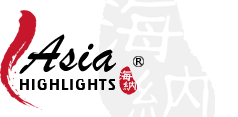One of the highlights of travelling to Japan is taking the time to stroll along hidden alleyways and browse in glistening malls on a shopping adventure. From meticulously crafted designer fashion, both local and international, to high tech gadgetry and quirky gift items ? there is always something that catches your eye when shopping in Japan.
This article should help you know better how to shop in Japan. Be sure that you plan your budget and baggage wisely for all the goodies you will surely want to purchase!
Quick facts
- Shopping hours in Japan are different from other countries; most shops open at 10:00 and close at 20:00!
- Follow the shopping etiquette for a quicker transaction.
- ATMs are available across Japan's big cities.
- Bring cash everywhere you go, as credit cards are not widely accepted.
Shopping hours
In Japan, most shops open at 10:00 and close at 20:00. Department stores usually close at 19:30 on Sundays and National Holidays, and some department stores are closed on Wednesdays. Convenience stores, known as konbini, can be found across Japan; they are open 24 hours a day, 7 days a week.
Public markets are packed with vendors and restaurants, selling all manner of fresh fish, vegetables, meat and prepared foods. Often serving both, restaurants and the public, they tend to open and close earlier than other shopping districts. They usually open around 7:00 and close between 14:00 and 18:00.
There are also Japanese supermarkets, which are slightly cheaper than convenience stores. However, most supermarkets tend not to be open 24 hours, usually they close around nine or ten in the evening. If flea markets are your thing, then Japan has some excellent ones that are worth checking out. Flea markets usually open early in the morning and stay open until around 16:30 in the afternoon.
Price and consumption tax
All sold items and services are subject to a government-imposed consumption tax of 8 percent. So, if you are looking at a 100-yen item, you will be charged 108 yen at the cashier. There are some tax-exempt items, that normally would be taxed but that are not subject to taxation under consideration of social policies.
There are also some items which clearly do not meet the guidelines for being subject to consumption tax and are therefore not taxed.
These are some tax-exempt and untaxed items: postage stamps, gift cards, prepaid cards, textbooks, donations, insurance, credit fees, etc. Basically, most goods, services, and utilities, in short, consumables,are taxable. Please be aware that the price displayed might not include the tax; you will get your final price at the cashier.
Payment and wrapping
All countries in the world have different kinds of payment methods. Japan is still a cash-based society. In Japan, it is very common to keep tens of thousands of yen in your wallet. The main reason is because most shops in Japan do not accept credit or debit cards.
While credit card payments are becoming more prevalent, they are still not as desirable as cash. Cash is handy because it is accepted everywhere, while credit cards can be an alternative for appropriate locations. You can find ATMs easily in big cities if you need to withdraw some cash.
Once you have paid for an item, it will be bagged or marked with colored tape. Clothing stores, department stores and gift shops, among others, will wrap your items if you indicate that they are for a gift. While this is often a free service, some stores charge a minimal fee for wrapping.
Tax-free shopping
If you're a temporary visitor, not working in Japan, and not a Japanese citizen, you can be exempt from paying the 8 percent consumption tax when shopping at certain shops. They usually have the sign "Japan Tax-Free Shop". It is not just duty-free shops or large retail chains that offer tax-free shopping, even some small, independent shops now do so as well.
It is quite simple to do tax-free shopping in Japan. Generally, for consumables, the total spending amount should be from 5,001 - 500,000 yen (before tax) to qualify for a tax exemption, while general items should cost 10,001 yen or more (before tax). However, some shops may have varying policies.
In order to qualify for tax exemption, you must meet the minimum eligible amount in a single purchase at the same shop on the same day, and you cannot combine consumables and general merchandise together.
Rights and refunds
Unfortunately, returns or exchanges cannot be accepted for personal reasons such as: "I ended up not liking the color". If you purchased a wrong size for clothing or shoes, in most cases, shops will be able to replace it with another one of the correct size, but the item should be unworn.
If you want to return a product in Japan, you should present the receipt. The length of time, shops accept returns depends on the kind of product and where you purchased it. This time period differs from within a week to a few months after the purchase.
Greetings and shopping manners
In Japan, people greet each other by bowing. A bow can range from a small nod of the head to a deep bend at the waist. A deeper, longer bow indicates respect, and conversely, a small nod with the head is casual and informal. Most Japanese do not expect foreigners to know proper bowing rules, and a nod of the head is usually sufficient. Shaking hands is uncommon.
If you want to try on a piece of clothing or a pair of shoes, you can ask the staff and they will bring you the correct size. When paying, put the money onto the provided tray (preferably with bills neatly unfolded). Your change will be returned in the same way. Bargaining is not common in Japan.
Shopping options
Japan is a place, where you can buy literally anything. If you dream of buying something unique and exceptional, you have come to the right place. What makes shopping in Japan a unique, fun experience, is that you can shop anywhere, from a department store to a market, or stalls at temples and shrines.
Department stores, shopping malls and arcades
They can be found in virtually all medium to large cities, even in the countryside. The shopping malls tend to be dominated by clothing stores and usually include restaurant floors or food courts, movie theaters and videogame arcades. Shopping arcades tend to be old, nostalgic shopping streets made up of dozens of small to medium-size stores and restaurants.
Department stores are known for carrying higher quality products and pride themselves by providing their customers with a high level of service. Accordingly, their prices tend to be higher in comparison with shopping malls and arcades. All of these shops have their own uniqueness that attract tourists.
Arts and crafts centers
You can find arts and crafts centers or flea markets pretty easily in this country. Japan has some excellent ones that are worth checking out. You will find all types of new and used art, crafts, clothing, traditional goods, antiques, food, jewelry, tools, weapons, etc.
Some of the best arts and crafts centers are held at Kyoto's Toji Temple and at Kitano Tenmangu Shrine, as well as at Tokyo's Meiji Jingu Gaien and Yoyogi Park.
Local markets
The exciting thing about local markets is having a chance to meet and talk with the locals. All merchants at local markets are locally-based people, so it is a great opportunity to talk to them and gather information.
Surrounded by the fresh morning air, conversation really takes off. From locally grown vegetables to hand-made folk crafts, being able to buy items directly from the producer or artist, is a lot of fun and a memorable experience
Temple and shrine stalls
The roads to popular temples and shrines are traditionally lined by stalls, shops and restaurants. If you visit one of the temples or shrines, you will encounter some mysterious yet delicious snacks and treats at the food stalls.
Also, there is a unique book you can only get from temples and shrines in Japan, it is called goshuincho, which translates to Honourable Red Stamp Book. It is a book that is used to collect stamps, to record the temples or shrines that you visit. Tourists usually get this book as a souvenir.
You might like to read
Shopping in Japan with Asia Highlights
Going for a stroll in a department store or shopping arcade can be overwhelming and confusing if you are not familiar with the area. Let Asia Highlights help you to create the itinerary and direct you to the appropriate stores, so you can focus on your shopping list. Please contact us if you have any questions!
Get Inspired with Some Popular Itineraries
At Asia Highlights, we create your kind of journey — your dates, your destinations, at your pace. You can have any trip tailor made for your travel.




